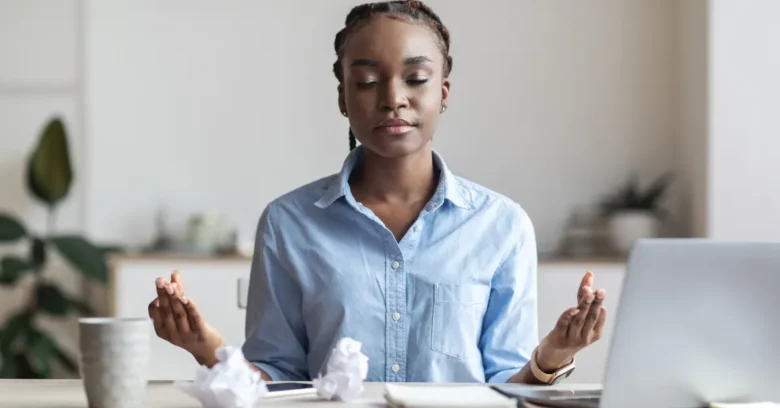Everyone feels anxious at times; it’s a normal feeling. It becomes a problem when it starts to affect daily life, relationships, and overall well-being. For many people, anxiety is not just an occasional emotion but a constant state of being that can make even simple activities seem daunting. Learning to manage anxiety starts with knowledge. Common accompanying symptoms include irritability, restlessness, trouble sleeping, and difficulty concentrating. Recognizing these symptoms can help you take steps to manage your anxiety in a healthier way.
Build Stability Through Routine
Creating and following a schedule is one of the most powerful tools for dealing with daily anxiety. A consistent framework helps reduce uncertainty, which is often a major source of worry. Scheduling set times for waking up, eating, working, and sleeping can help you create structure in your day. Knowing what’s ahead eliminates the need for constant anxiety. Scheduling your meals, breaks, and free time are simple tasks that can help you gain more control over your day.
Meditation and Mindful Breathing
Effective ways to calm your mind and bring yourself into the present moment are to focus on your breathing and meditate. Anxiety often causes you to worry about the future and what might happen. Mindfulness brings you back to the present. Sitting quietly for five minutes each day and focusing on your breathing can help reduce stress and put negative thoughts into perspective. Guided classes and meditation apps can help beginners get started more easily. Regular practice can increase emotional resilience over time and help people cope with worrying thoughts.
Participate in Regular Physical Activity
A natural way to reduce stress is exercise; it can significantly reduce anxiety symptoms. Exercising releases endorphins in your body, chemicals that induce feelings of happiness and well-being. You don’t have to do strenuous exercise; walking, stretching, yoga, and even dancing can improve your mood. Regular exercise not only makes you feel better physically; it also helps you to clear your mind, sleep better, and increase your self-confidence. Even 20 to 30 minutes of daily exercise can make a noticeable difference in the way you feel mentally.
Connect with Inspiring People
Talking to someone you trust can help you manage your anxiety. Whether it’s a family member, friend, or therapist, just talking out your thoughts out loud can help reduce stress. Human contact can be reassuring and make you feel like you’re not the only one going through this. Supportive conversations can provide new perspectives and sometimes unexpected answers. Talking about your anxiety can be uncomfortable; however, simply being with other people and participating in activities you enjoy can help.
Reduce Overstimulation and Trigger Exposure
Modern life is full of stimuli that can trigger or exacerbate anxiety, such as endless news updates, comparisons on social media, and endless household chores. Learning to control your environment can help you reduce this stress. This may mean limiting screen time, especially before bed, or turning off alarm clocks that disrupt your concentration. It can also help to create a quiet space in your home with soothing music or soft lighting. Understanding what is causing your anxiety can help you take small steps to minimize or prevent it.
Practice Self-acceptance and Compassion
Often, anxiety can make a person feel like a failure or that they haven’t accomplished enough. If you’re overworked, it makes sense to be hard on yourself. Self-compassion means treating yourself with the same love and patience you would show your friends. It’s okay to have bad days, make mistakes, or not do everything as planned. Reminding yourself that you’re doing your best and that it’s not your fault that you’re worried can help relieve emotional stress. Acceptance doesn’t mean giving up; it means acknowledging your feelings without judgment and responding to them with compassion.
Using Journaling to Process Emotions
Keeping a journal can be a therapeutic tool for managing anxiety by recording your thoughts and emotions. By writing down your worries regularly, you can see them more clearly and feel more in control of them. Journaling can help you track trends, identify triggers, and evaluate your progress over time. You can use suggestions such as, “What made me anxious today?” or “What made me feel better?” ” or free writing. This method can also be a way to express gratitude or highlight the good times, helping you shift your focus from anxiety to hope. Regular writing promotes a pattern of self-awareness and development.
Getting Enough Sleep and Practicing Sleep Hygiene
Lack of sleep can increase anxiety and make it harder to cope with stress during the day. Developing good sleep habits can help you better manage your emotions and stay calm under stress. This requires a calming sleep routine, no coffee, no heavy meals before bed, and a consistent bedtime each night. Before bed, listen to soothing music, take a warm bath, or read a book. Keeping electronic devices out of your bedroom can also help you sleep better. When it comes to your mental health, making rest a priority isn’t a luxury. It’s a necessity.
Conclusion
Managing anxiety on a daily basis is a never-ending journey that requires patience, mindfulness, and regular self-care. While anxiety won’t go away completely, effective coping techniques can significantly reduce its severity and impact. Each tool offers a unique approach to restoring a sense of calm and control, from focused breathing to encouraging conversation and organizing your schedule. Everyone experiences anxiety differently, so it’s important to find what works best for you and incorporate it into your daily life. These small actions can add up to big changes and improved emotional well-being over time.
FAQs
1. How can I best manage my daily anxiety?
While there is no universally effective solution, a combination of mindfulness, exercise, and habits can effectively reduce daily worries.
2. Will anxiety really go away?
For some people, the right support and lifestyle changes can significantly reduce or eliminate their anxiety; for others, long-term treatment may be necessary.
3. Can coping strategies work with medication?
Of course, some people may benefit from using doctor-prescribed medication in combination with daily coping skills and guidance.
4. How do I know if I have severe anxiety?
If anxiety is interfering with your daily life or causing you severe stress, it is best to contact a mental health professional.
5. Can talking to a friend reduce anxiety?
Absolutely. Talking to someone you trust can provide emotional support, reduce loneliness, and offer new perspectives on stress management.




